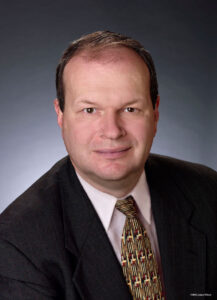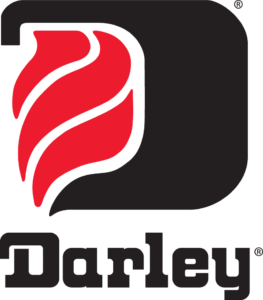
David Smith is a wicked problem-solver, collaborative business leader, technologist, and innovative futurist. He has held executive roles in R&D, government, commercial, and academic organizations. David has been named one of the top seven global futurists in the Millennium issue of Business Week. In this conversation, David shares several concepts to help leaders keep up with the present and prepare for the future. He describes wicked problems, and how to bring a team together with the tools to solve them. He is one of two futurists who have been accurate for the first 22 years of the century and is still on track.
Key Takeaways
[2:18] David and Jim first met in Austin and found they had a mutual friend in Steve Justice.
[3:46] In David’s youth, as a long-haired roadie, he ran audio for the Beach Boys, the Carpenters, and others. David shares a story from that era.
[6:18] David solves wicked problems, which are complex problems that have no known solution path. He once had a team of about 200 people over a year make a 45-year wicked problem roadmap for high-energy-density storage for the military. We can store energy now, but not yet at the density that we need.
[7:53] Sematech was formed to regain the semiconductor industry back in the United States. They did it. Dave was one of the co-leaders of the first industry roadmap done in the United States. They worked with semiconductor manufacturers, suppliers, academia, and the government to create the roadmap. The commercial sector, academic sector, and government sector acted as a technopolis to enact change.
[9:16] Solving wicked problems involves pulling the various stakeholders of commerce, academics, and the government to work together.
[10:31] David explains the process of seeing fifty years into the future. He was one of seven futurists who predicted that this century would be defined by bio. All technology is becoming biological. At 22 years in, he’s been pretty accurate. Only one of the other futurists is accurate for today. All the other five have fallen off the table. David explains how he used a framework.
[11:20] A leading futurist has changed his future every 14 to 20 months. That’s not forecasting, it’s predicting and then changing his prediction. David uses a method that includes six views of the future: as an extrapolator, a pattern analyst, a goal-setter, a counterpuncher, an intuiter, or an artist. Different techniques are used for each of the views.
[12:27] Use people who can work in different views to optimize out errors. David shares a story of a satellite phone company that went to market using only an extrapolation view to forecast sales. In 12 months, they asked David to work with them and get them on track, because his multiple-view forecast of their numbers had been right.
[15:32] How can global social issues be solved? David explains that his framework can be applied across the U.S. and even as far as Malaysia. People understand the value of different views. He tells why the front windshield of a car is larger than the rear window; where we’ve been is important but where we’re going is more important. You need to know where you’ve been to be optimized for the future.
[18:36] When David interviews people, he asks a standard set of questions and also roleplays. One roleplay involves the interviewee being asked to defend his actions against “one of the world’s leading experts” who disagrees with what the interviewee is doing. That shows David the candidate’s potential for dealing with human dynamics. It reveals competencies and capabilities.
[21:46] David suggests something for leaders: They and everyone in their company need to know that we are in a time of lifelong learning and the way we learn is dramatically changing. David is constantly learning and constantly looking at how to learn. One of the six views of the future is counterpuncher. A counterpuncher does a great job of current awareness. A counterpuncher works scenarios.
[23:28] David looks for weak signals. There’s a lag between inventing something at a university and getting it to the marketplace. David uses tools that let him see what research universities are doing. That gives him the advantage of seeing weak, early signals and spending more time researching. He networks with a lot of people in different industries and he’s always learning. He connects the dots.
[25:12] Leaders sometimes forget that other industries are having to solve many of the same types of problems. Dave suggests looking at horizontal convergence. Often you can connect the solutions and the data well between industries. Follow David on Twitter. He posts several times a day of early indicators of industries, trends, and research.
[26:03] It’s very important to understand that the world is not static. Ask people to help you learn to do new things and prepare for the future. David tells people around the world that he’s an East Texas farm boy. He finds it a great way to get people comfortable talking with him.
[27:06] Before going to a research university, David participated in a pilot education program with 21 students at a college outside of Dallas. It was a one-year inquiry program of learning from original source material without textbooks. It forced them to synthesize. Learning to synthesize, plus having great mentors, gave David the greatest advantage in his career.
[29:24] We live with “systems of systems.” Your one mobile device has voice communication, data, photography, entertainment, GPS, etc. David suggests thinking of mentors as a system. One mentor for your current role, one mentor for understanding the politics of the company, and one mentor outside your company for understanding entrepreneurship. Make connections and cultivate them as you go.
[31:34] Don’t look for a mentor to hold your hand, but one to point to the mountain and let you choose how to climb it to reach the top. Ask for help if you need it, but you need to understand the path yourself. You want a mentor to help stretch your brain, your competencies, and your capabilities. Learn intangibles above technical skills. David would hope you mentor others below you, too. It’s not one-way.
[35:28] David’s hiring advice: Hire people who understand the principle of group intelligence. It’s one of the strongest things David looks for in capabilities. If a rockstar candidate does not work well with others, the impact of that candidate will not be sustainable or optimal.
[36:23] David’s six views of the future are one of the ways he builds group intelligence. When he hires people, he wants to see if they’re the one who always has to be right or if they play well with others.
[36:41] David recommends silent brainstorming to generate ideas. He explains why it brings out better ideas than brainstorming out loud, and how it works, using a customer example.
[39:26] Wicked problems are solved using group intelligence, using a technopolis approach, and using the six views approach. The common theme is using the power of people and the power of group intelligence.
[40:28] Participation in team sports is an indicator of group intelligence. David looks to see if candidates participate in group hackathons to develop a solution over a weekend with people you don’t work with. David also roleplays to see how the candidates get their information and use group intelligence.
[42:28] David agrees with Steve Justice that we need to stand in the future. David says he has to live in the future to survive today. A leader’s job is to help get the roadmap in place for where the company wants to go. A map has multiple possible routes, and it’s not necessarily the leader’s role to pick the route and the detours. It’s to set the vision and help them understand what the future goals are.
[43:28] A leader’s role is to help the organization put roadmaps together for technology, services, products, and capabilities. The roadmaps empower the organization to get to its goals. A 100% top-down leadership in today’s global, connected world would be too complicated for one leader. He needs the group intelligence of his teams, suppliers, and other stakeholders to help build the roadmaps.
[44:52] David’s closing thoughts: Since the beginning of recorded data, the amount of data has doubled every two years. Because of the quantity of the data, most legacy tech systems will fail. People need to be in the mode of lifelong learning, or they will be left behind. Twenty years ago, we didn’t have web developers or eCommerce. Coming up, robotics and autonomous systems will revolutionize the world.
[48:19] Closing quote: “We cannot solve our problems with the same thinking we used when we created them.” — Albert Einstein.
The Leadership Podcast is sponsored by W.S. Darley & Company.
Founded in 1908, Darley remains a family owned and operated business, providing the highest quality equipment solutions to our country’s warfighters and firefighters.
Learn more at darley.com and darleydefense.com
Quotable Quotes
“When we formed Sematech, our market share in the U.S. had fallen to about 30% globally. That’s a danger point for us. Just like today, … you’re hearing about how the U.S. must regain its semiconductor industry again. Well, we did… Share on X “[For] wicked problems, … you’ve got to pull these various stakeholders together. And then you have to use approaches to make sure that what you’re doing is accurate. And what has caused many of these to fail is the use of only a… Share on X “I have a framework where we look at six different views of the future. You’re an extrapolator, a pattern analyst, a goal-setter, a counter puncher, an intuiter, or an artist. What makes this system unique is that there are… Share on X “When we try to tackle hard problems, … we use techniques that go across those different views. … When we do the working groups, I not only want people from the technopolis areas but I want people who have the ability to work in… Share on X “Where we’ve been is important but where we’re going is more important.” Share on X “One of the first things I want the listeners to understand is that we’re in a time of life-long learning. And it’s not just for leadership but everyone within your company needs to understand that we’re in a time of lifelong… Share on X “When you , you rarely get any feedback from a university in the search results. But universities are doing a lot of the future science. There’s usually a lead-lag relationship between when something’s invented in a… Share on X “I learn when I talk to people. … I ask questions. I put a scenario out there and say ‘Does it work here?’ and try to understand the answer. The ability for me to be able to work across the different industries I do is, I am a… Share on X “Very often, we get so caught up in our vertical industry knowledge, we forget the other industries are having to solve many of the same problems. Maybe a different set of customers, but face the same types of problems. So you need… Share on X “We’ve got to change or we would still be plowing fields with pieces of rock.” Share on XResources Mentioned
- Sponsored by: Darley.com
- Rafti Advisors. LLC
- Self-Reliant Leadership. LLC
- David Smith on LinkedIn
- David Smith on Twitter
- In-Q-Tel
- CIA
- NSA
- SEMATECH
- Steve Justice
- Skunkworks
- The Beach Boys
- Carpenters
- Dell
- Bob Noyce
- Intel
- World Economic Forum
- Microsoft
- Cisco
- “What Only the CEO Can Do”, by A.G. Lafley, HBR
- Peter Drucker
- Autonomous Systems
- Corporate Competitor Podcast, with Don Yaeger


Recent Comments